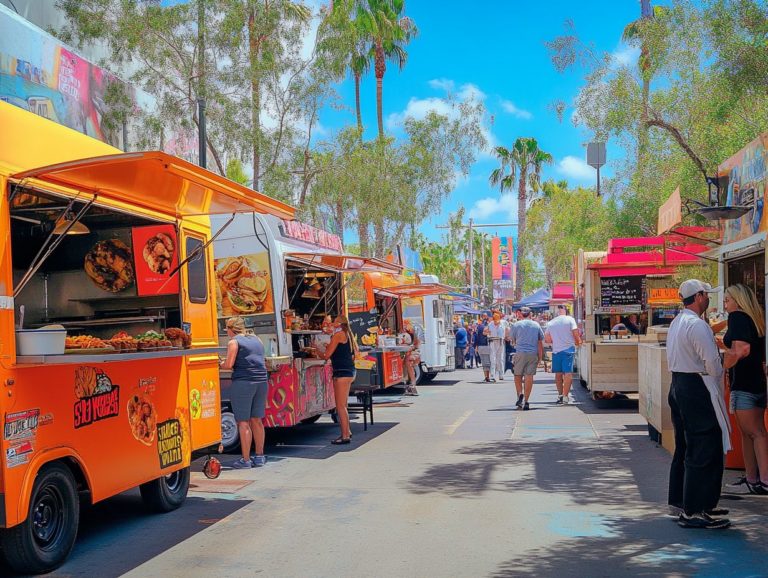What is Coverage for Off-Roading?
Off-roading can be an exhilarating adventure, but it’s crucial for you to understand the details of off-roading coverage to protect both yourself and your vehicle.
This article delves into what your insurance policy covers and what it doesn t highlighting essential types such as liability, collision, and comprehensive coverage. It examines the factors that influence your coverage, including your vehicle type and the terrain you drive on.
You ll also discover valuable tips to ensure your off-roading experience is both safe and enjoyable. Read on to navigate your off-roading insurance needs with confidence.
Contents
Key Takeaways:
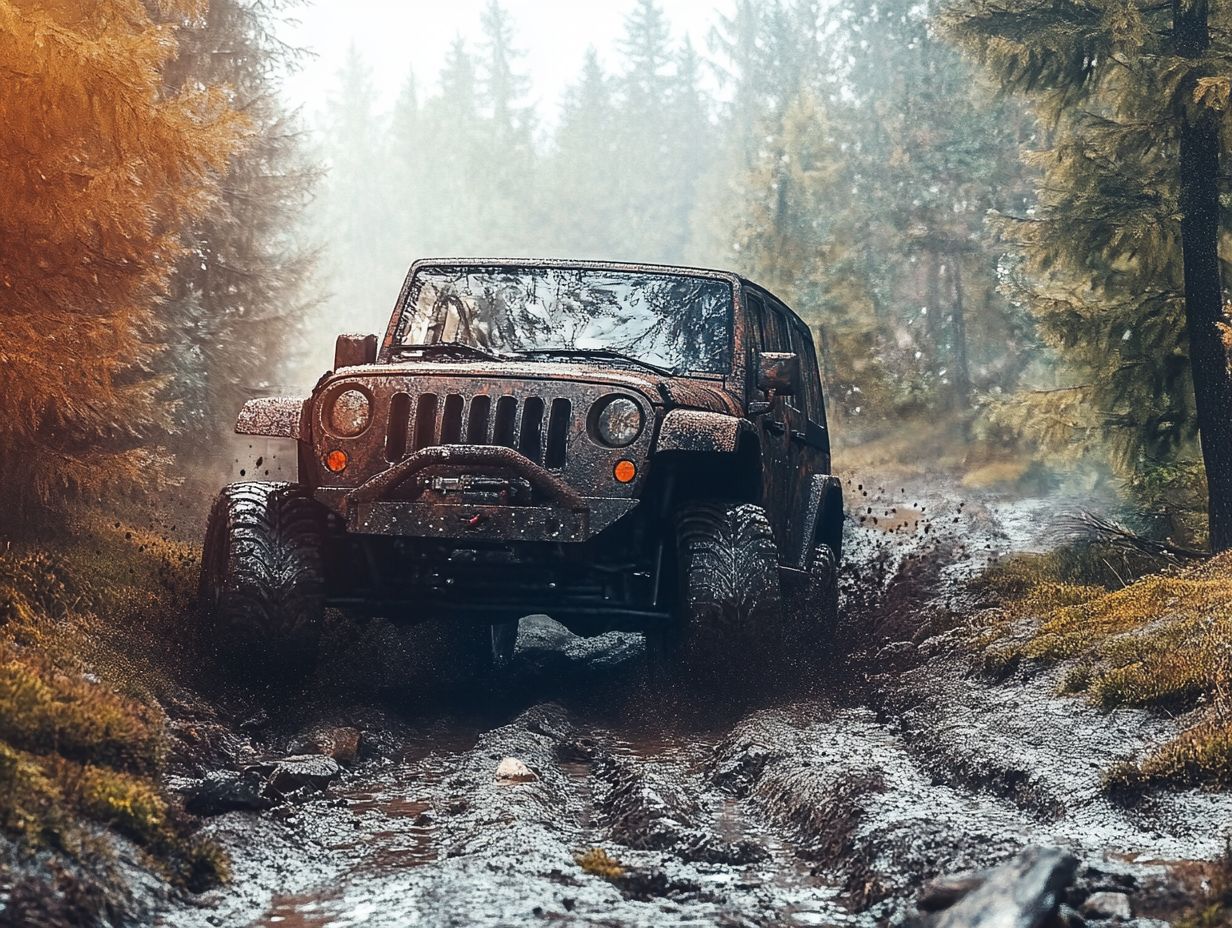
- Off-roading coverage protects your vehicle and others in case of accidents or damage while off-road.
- There are different types of off-roading coverage, such as liability, collision, and comprehensive, each with its own coverage limits and exclusions.
- Factors such as vehicle type and modifications, driving location, and terrain can affect the type and cost of off-roading coverage you need.
Understanding Off-Roading Coverage
Understanding off-roading coverage is crucial for anyone who revels in the thrill of exploring unpaved terrains with vehicles like ATVs, dirt bikes, snowmobiles, and UTVs. For those interested, knowing what coverage for special interest vehicles entails can help clarify the unique risks tied to off-road activities and make insurance policies seem less daunting.
With proper coverage, you can protect your vehicle and enjoy every moment while embracing the great outdoors. The right coverage allows you to concentrate on the exhilaration of the ride without the nagging worry of potential mishaps.
What is Covered and What is Not
In terms of off-roading insurance, knowing what is covered and what isn t is essential for vehicle owners seeking complete insurance that covers many situations.
Pay particular attention to the specifics of various coverage types. For instance, collision coverage can help cover repairs after an accident involving another vehicle or an object, ensuring you re not left high and dry. Bodily injury coverage safeguards you against the financial responsibilities you have if someone is hurt due to your actions, while property damage coverage addresses the costs associated with any damage you might inflict on someone else’s property.
It s also important to know common exclusions within off-roading insurance policies. This might include damages incurred while participating in organized racing or using your vehicle for commercial purposes. Understanding these exclusions is vital for effective risk management and allows off-road enthusiasts like you to enjoy your adventures with complete peace of mind.
Types of Off-Roading Coverage
Explore the diverse array of off-roading coverage designed specifically for your vehicle, whether it’s an ATV, dirt bike, snowmobile, or UTV. Understanding coverage for personal pleasure vehicles provides tailored protection, addressing the distinct challenges encountered during your outdoor adventures.
Liability Coverage
Liability coverage is an essential component of your off-roading insurance, crafted to shield you from the financial fallout of causing bodily injury or property damage to others while you re out on the trails.
This type of insurance becomes especially vital in off-roading situations. The terrain is unpredictable, and encounters with other vehicles or obstacles are often part of the thrill. In these adventurous settings, the risk of collisions rises significantly, and liability insurance is there to cover the costs associated with any injuries or damages you may cause to others.
For example, if you accidentally bump into another vehicle on a rocky path, liability coverage can help manage the expenses tied to medical bills or vehicle repairs. This gives you the peace of mind you need to fully enjoy your ride and reinforces responsible riding practices, reminding you that with great adventure comes great accountability.
Ready to hit the trails? Check your insurance today!
Collision Coverage
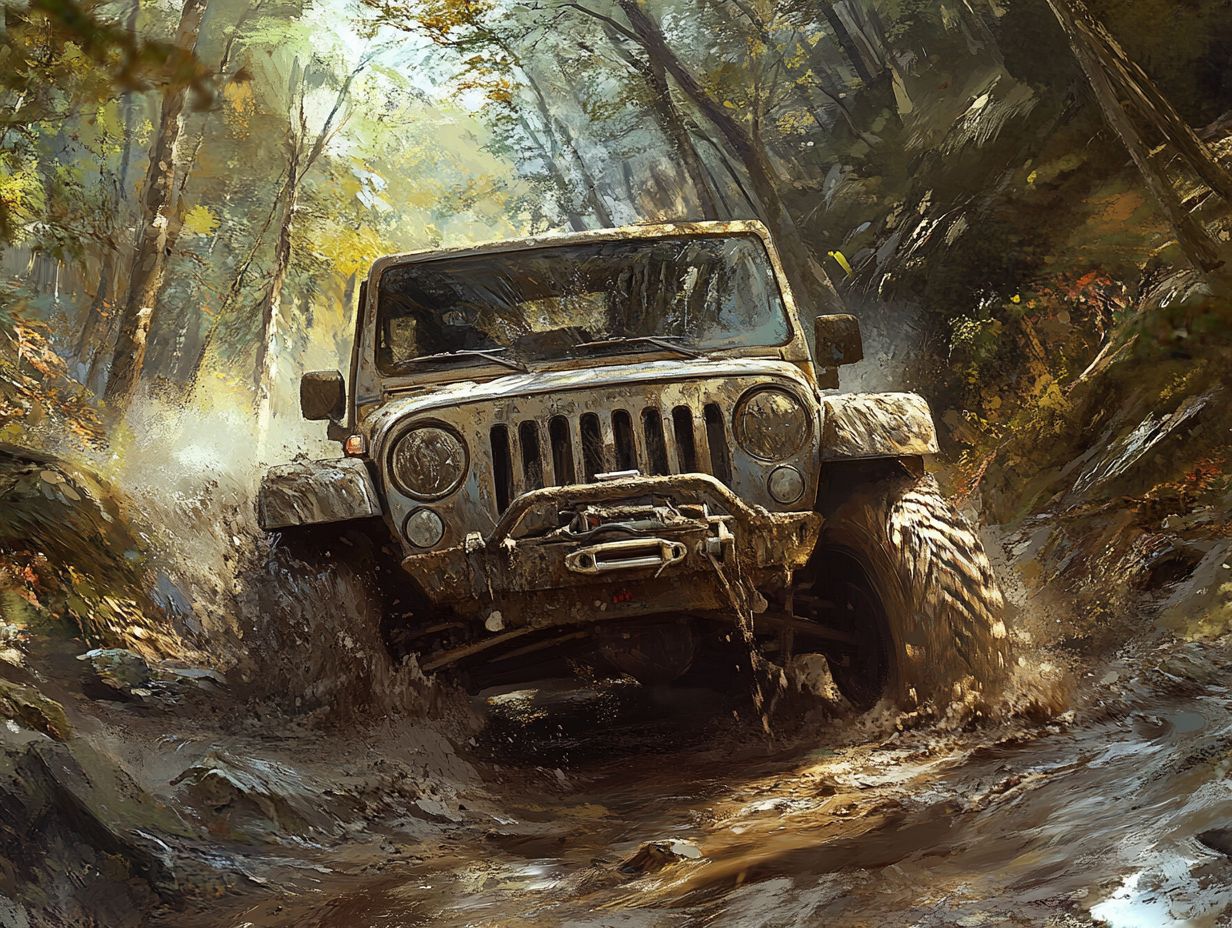
Collision coverage is essential for you as an off-road vehicle owner, offering protection against damages from accidents, regardless of who is at fault. This type of insurance ensures that if your vehicle suffers damage from a collision whether it’s with another vehicle, a tree, or any fixed object you are financially protected.
When an incident occurs, you typically engage in a process where an insurance adjuster assesses the extent of the damage through a detailed inspection. They will evaluate the repair costs and determine whether your vehicle can be salvaged or if it s a total loss.
Filing a claim is generally a straightforward task, but it requires you to have documented proof of the accident, including photos and police reports. For those of you who relish off-roading, collision coverage becomes essential, especially in challenging terrains where risks are heightened.
Be aware: some limitations might apply, especially in remote areas where standard policies might not cover the terrain. Therefore, you should meticulously review your coverage options to ensure you have sufficient protection for all your adventures.
Comprehensive Coverage
Comprehensive coverage is a crucial aspect of off-roading insurance, protecting your vehicle from non-collision-related damages like theft, vandalism, or those pesky weather-related incidents. To learn more about this, check out coverage for personal vehicles.
This type of insurance is especially beneficial for those who often navigate rugged terrains or leave their vehicles in less secure locations. Imagine a sudden hailstorm wreaking havoc on your vehicle’s exterior or a thief making off with your gear at a secluded campsite; comprehensive coverage steps in to lighten the financial load of repairs or replacements.
Comprehensive coverage is a game-changer, keeping both your vehicle and finances secure during your adventures! It provides you with peace of mind during those spontaneous off-road escapades, knowing you’re safeguarded against unexpected events like falling branches or damage from curious wildlife.
Factors Affecting Off-Roading Coverage
Several factors will influence your off-roading coverage, including the type of vehicle you own, any add-ons or changes to your vehicle you’ve made, and the specific terrain where you enjoy your adventures. It’s important to understand coverage for vehicle modifications to ensure you’re properly protected.
Each of these elements can significantly impact your insurance policies and premium rates.
Vehicle Type and Modifications
The off-road vehicle you own, along with any add-ons or changes, is pivotal in shaping your insurance coverage and premium rates.
For example, all-terrain vehicles (ATVs) are vehicles designed for off-road use, capable of traversing a variety of terrains. They require distinct insurance policies compared to dirt bikes or utility task vehicles (UTVs), as each type presents its unique functionalities and associated risks.
It’s also essential to consider how modifications like enhanced suspensions or performance upgrades can profoundly impact your coverage. While these enhancements may elevate both performance and style, they could lead to increased insurance costs or even limitations in coverage if they heighten the risk of accidents.
Grasping these intricacies gives you the power to effectively safeguard your investment while relishing your off-road adventures.
Driving Location and Terrain
The driving location and terrain are crucial in shaping insurance coverage for off-roading activities. Each environment presents its own set of unique hazards and risks that insurers meticulously consider.
For example, when you re tackling rocky trails, the likelihood of vehicle damage increases due to sharp rocks and uneven surfaces. This prompts insurance providers to adjust their risk assessments and coverage options accordingly.
Navigating grassy fields presents challenges like unpredictable mudslides or hidden dips. Insurers are compelled to reevaluate liability coverage for potential accidents arising in these uncertain conditions.
Venturing into wooded areas introduces further complexities, such as falling branches and the risk of wildlife collisions, which could lead to more significant claims. By carefully analyzing these diverse terrains, insurance companies can craft policies that accurately reflect the actual risks you face in specific environments, ensuring that you receive both adequate protection and a fair premium.
How to Get the Right Off-Roading Coverage
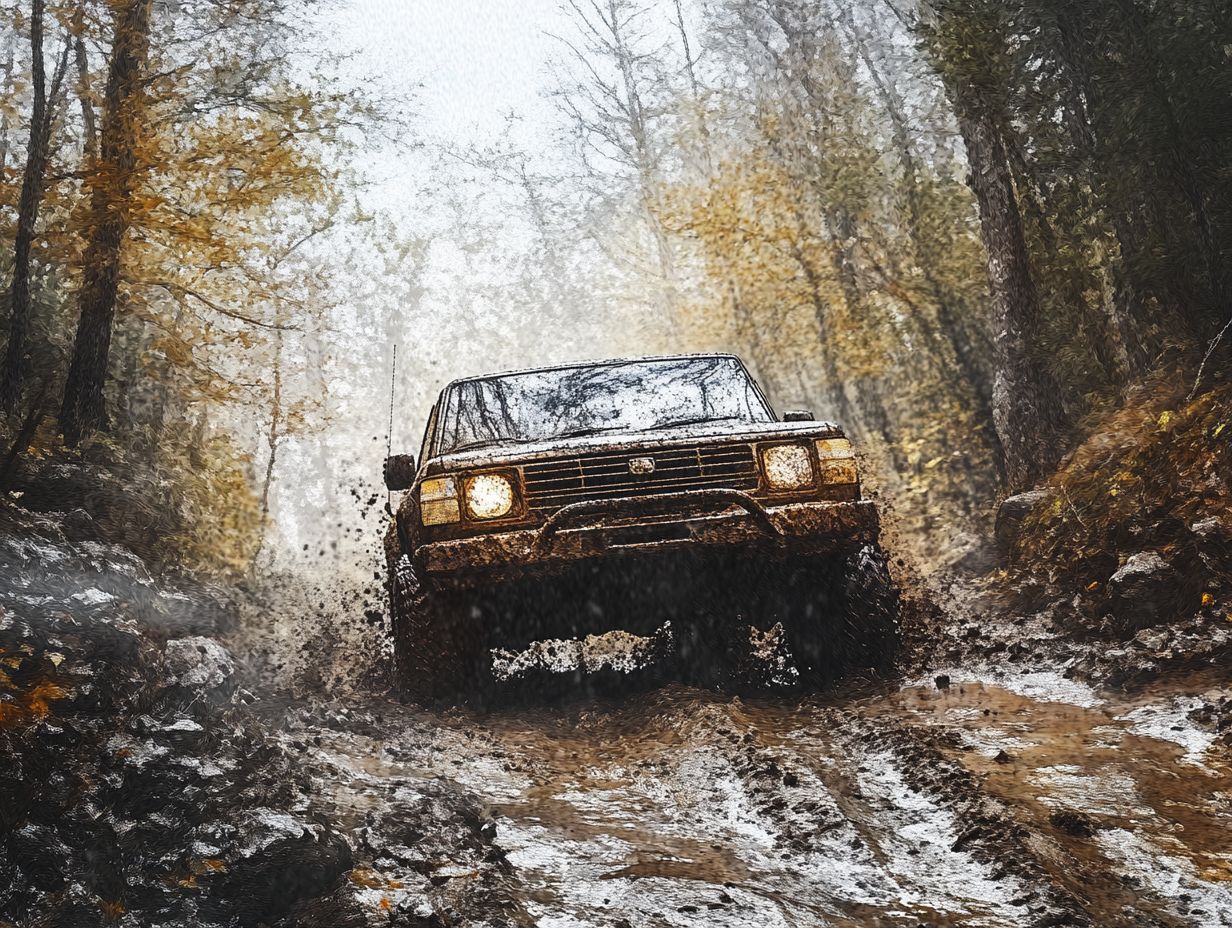
Securing the ideal off-roading coverage demands your careful attention to a range of insurance policies, eligibility requirements, and possible discounts related to your riding history and the completion of safety courses.
Each detail matters as you navigate the landscape of options. This ensures you re thoroughly protected on your adventures.
Insurance Requirements and Options
Understanding the insurance requirements and options for your off-roading vehicle is crucial for adequate protection during your outdoor activities.
Every state has its own distinct regulations that dictate the types of coverage needed for various off-road vehicles. This includes ATVs, dirt bikes, and more. For example, while some areas might require liability insurance, others could mandate collision or comprehensive coverage to protect against damages from accidents, theft, or natural disasters.
When exploring these options, consider your specific usage patterns and the value of your vehicle. Familiarize yourself with local laws regarding off-roading activities. By carefully evaluating your needs, you can make informed decisions about the insurance coverage that fits you best. This way, you can enjoy your adventures with peace of mind as you navigate diverse terrains.
Tips for Safe Off-Roading
Stay safe and enjoy every thrilling moment of off-roading! Practicing safe off-roading is essential not just for your enjoyment, but also for effective risk management.
Precautions and Best Practices
Adopting proper precautions and best practices is vital for ensuring a safe off-roading experience. This applies whether you re tearing up the trails on dirt bikes, ATVs, or snowmobiles.
Consider enrolling in a safety course tailored specifically for your chosen off-road vehicle. It equips you with essential skills and knowledge to confidently navigate various terrains.
Before you venture out, don t skip thorough vehicle maintenance checks. This ensures everything is in top shape, especially brakes and tires.
Familiarizing yourself with local laws and regulations can save you from legal headaches and enhance your overall safety. Remember to wear protective gear helmets, gloves, and pads are crucial for reducing injury risks.
Ultimately, practicing responsible riding and staying aware of your surroundings protects not just you, but also enriches the experience for everyone on the trail.
Frequently Asked Questions
What is Coverage for Off-Roading?
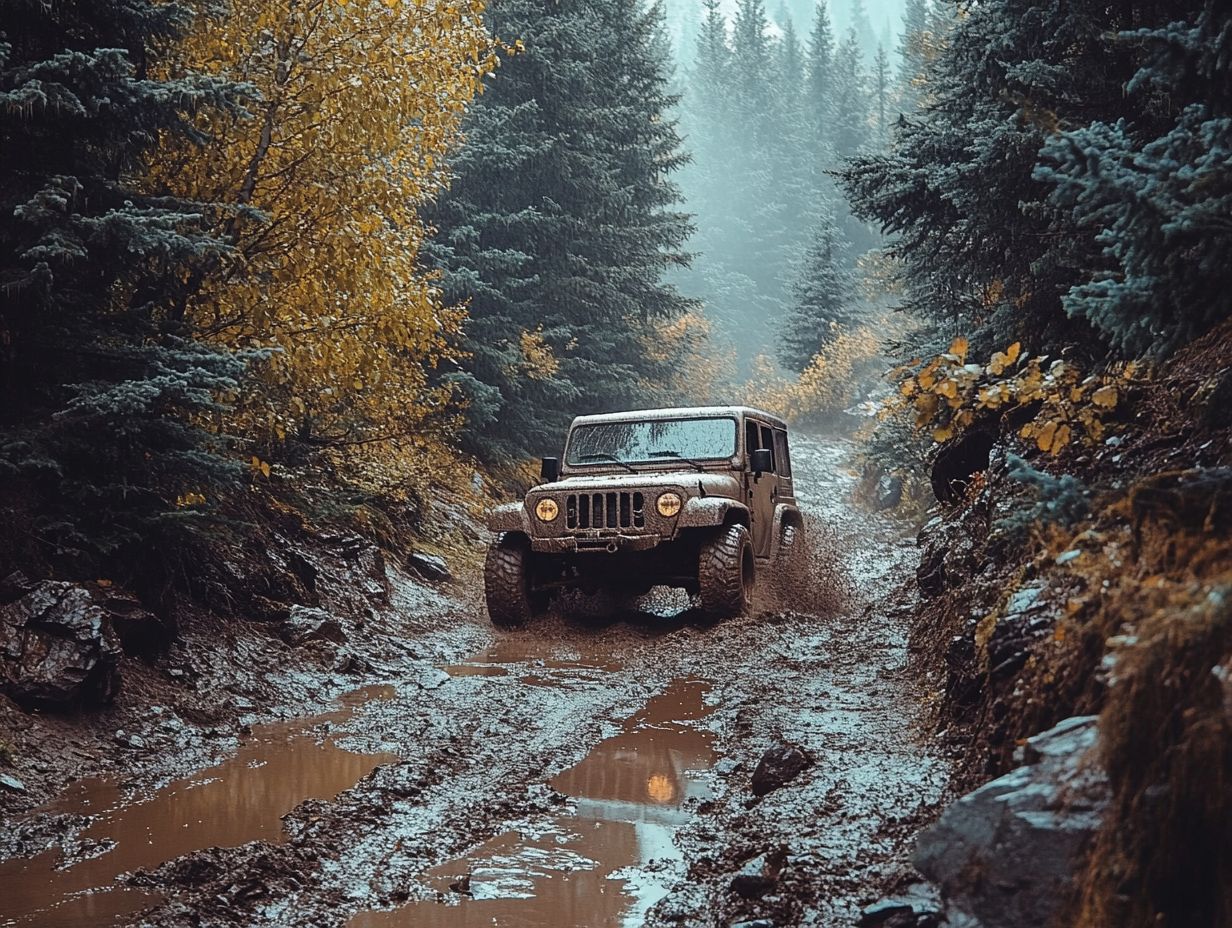
Coverage for off-roading is a type of insurance that provides protection for vehicles used on unpaved roads and terrains. For more details about this, you can learn about coverage for specialized vehicles, as these vehicles are typically not covered under regular auto insurance policies.
What does Coverage for Off-Roading include?
This type of coverage usually includes protection for damages to the vehicle, personal injury, and liability for any damages caused to others or their property while off-roading.
Do I need Coverage for Off-Roading?
If you frequently use your vehicle for off-roading activities, it’s highly recommended to have coverage for recreational vehicles. It offers additional protection and peace of mind.
Are there any exclusions for Coverage for Off-Roading?
Exclusions may differ depending on the insurance provider. Common exclusions include using the vehicle for organized or competitive events, modifications that increase the risk of off-roading, and intentional damage.
Can I add Coverage for Off-Roading to my existing auto insurance policy?
You can add coverage for off-roading as an additional endorsement to your existing auto insurance policy. It’s important to check with your insurance provider to ensure they offer coverage for snowmobiles as this type of coverage may vary by provider.
How much does Coverage for Off-Roading cost?
The cost of coverage for off-roading varies based on factors such as the type of vehicle, frequency of off-roading, and the level of coverage selected. For more information, you can learn about coverage for roadside assistance. Contact your insurance provider for a personalized quote.
Ready to protect your adventures? Contact your insurance provider today for a personalized quote!
With the right coverage and precautions, you can make the most of your off-roading adventures. Stay safe and have fun!



